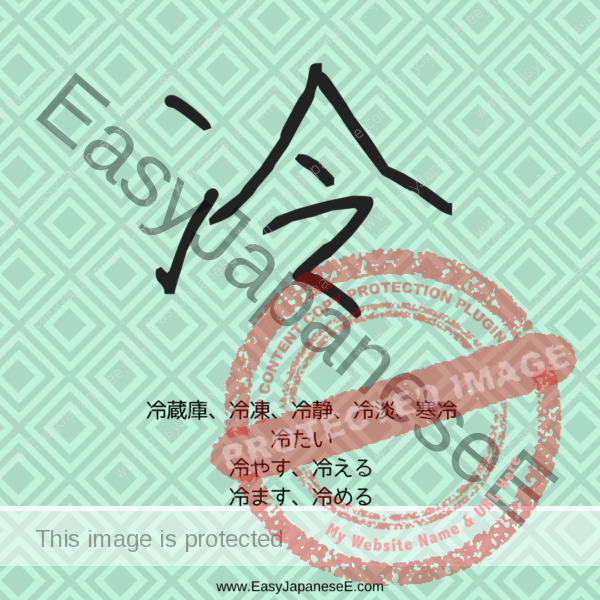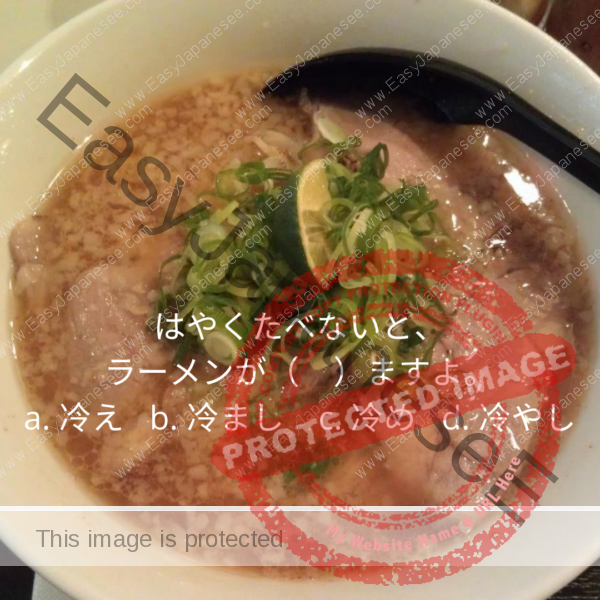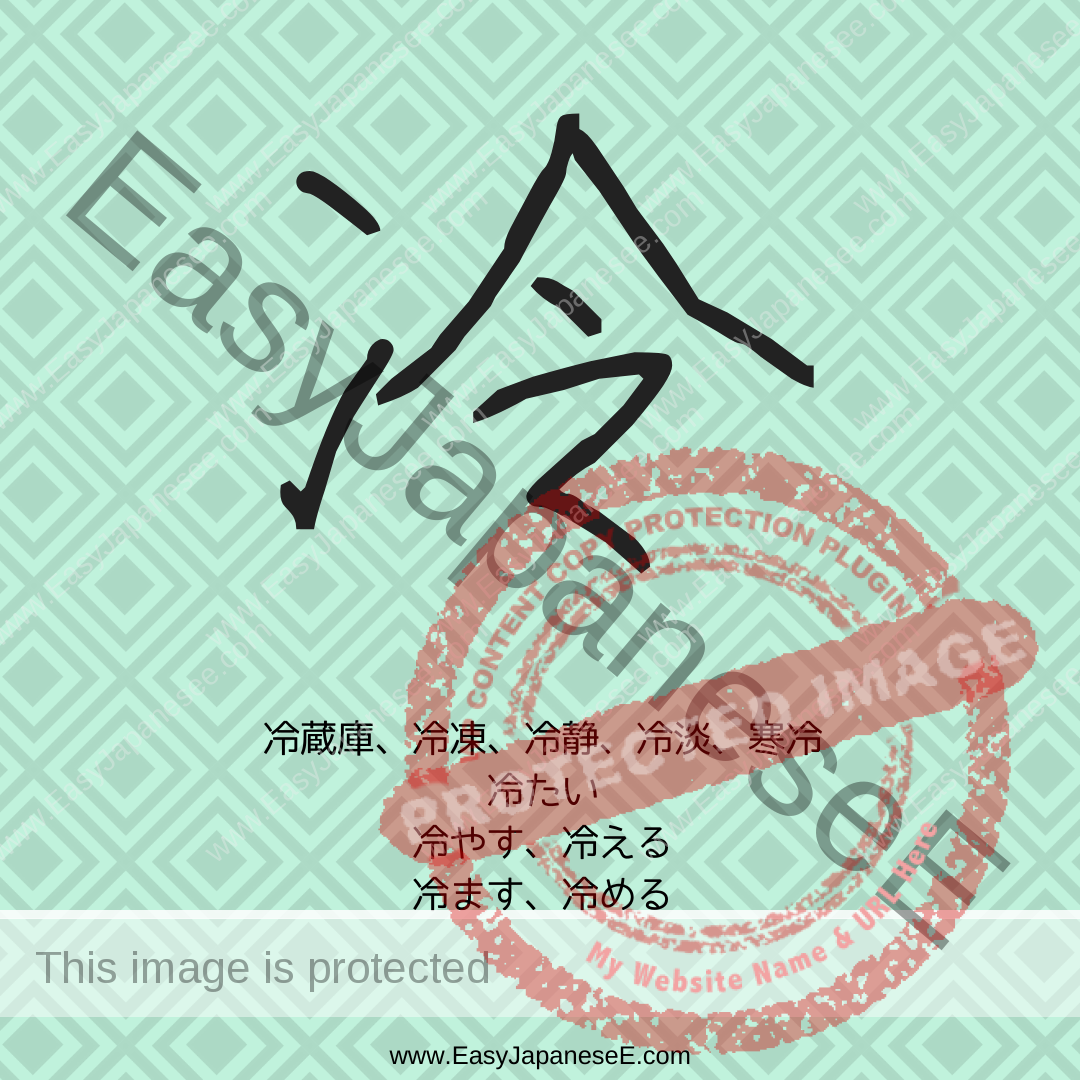Today’s #kanji is #冷, which is made of its semantic element of #にすい(冫), which shows association with 氷 (ice), and the phonetic element of 令.

Meaning: cold, cool
Reading: レイ、つめ、ひ、さ
冷蔵庫(レイゾウコ): [noun] a fridge, a refrigerator
冷凍(レイトウ)する: [vt] to freeze
冷静(レイセイ): [なadj] calm, cool(headed), levelheaded
冷淡(レイタン): [なadj] cool, halfhearted, indifferent, heartless
寒冷(カンレイ): [なadj] cold, chilly
冷(つめ)たい: [いadj] cold, cool, icy; cold-hearted, standoffish
冷(ひ)やす (vt) / 冷(ひ)える (vi): to cool, to chill
ビールを冷やして飲みました。(vt)
I chilled the beer and had it.ビールが冷蔵庫で冷えています。(vi)
Beer is chilled in the fridge.
冷(さ)ます (vt) / 冷(さ)める (vi): to cool, to cool down (this describes something’s extreme heat being lost)
ジョンさんはスープを冷まして飲みました。(vt)
John let the soup cook down and had it.はやく飲まないとスープが冷めますよ。(vi)
If you don’t have it quickly, the soup will get cold.
さます/さめる can also be used to describe when something (extremely) cold loses its chill and become lukewarm but in that meaning, it’s often written in Hiragana.
ジョンさんはビールをさまして飲みました。(vt)
John let the beer become lukewarm and drank it.はやく飲まないとビールがさめますよ。(vi)
If you don’t drink it quickly, the beer will become lukewarm.
A quick quiz

The sentence should mean: “If you don’t eat it quickly, the ramen will get cold.” As it is the ramen that would cool down by itself, not a person trying to cool it down, we need to use an intransitive verb that means “to lose heat,” which is c. 冷め. a. 冷え is also an intransitive verb but that means “to get chilled (in a fridge or so)” so it does not suit the context.
If you are not sure about the difference between transitive verbs and intransitive verbs, watch this video and/or do some exercises with Transitive verbs vs Intransitive verbs module.
By the way, in summer, many people in Japan like to eat chilled Chinese style noodles called 冷麺 or 冷やし中華. The word 冷麺 is pronounced like レーメン which makes a slight pun with ラーメン that is always served hot.


